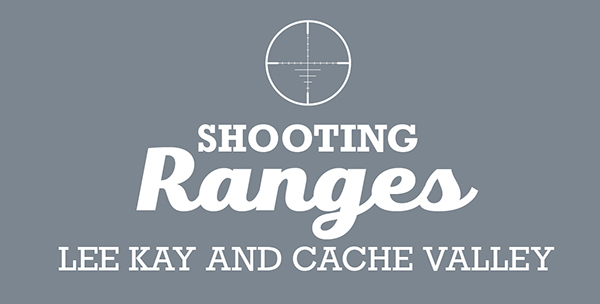Important: This information is about the 2020 antlerless hunt and is provided for reference only. View the latest antlerless application guidebook.
Private-lands-only permits
Elk hunters have the option of obtaining a private-lands-only permit. This permit allows the harvest of an antlerless elk on private land within a specific hunting unit.
How do the permits work?
Private-lands-only permits are valid on private property in select units from Aug. 1, 2020 to Jan. 31, 2021. Before you use one of these permits to hunt on private property, please review Utah's trespassing laws and determine if you need to obtain written permission from the landowner. The Division strongly encourages hunters to obtain written permission before purchasing one of these permits.
A private-lands-only permit allows the hunter to use any legal weapon to harvest an antlerless elk.
The goal of these hunts is to harvest cow elk and to apply strategic pressure on private lands that pushes elk back on to public lands.
How can you obtain a permit?
Private-lands-only permits to hunt antlerless elk will be available beginning July 22. You can buy the permits online and at license agent locations and Division offices.
New this year: Starting July 1, 2020, all license, permit and application fees for nonresident hunters will increase. For details, see the License, permit and miscellaneous fees page. Also, if you purchase one of these permits, you will lose any preference points you have previously accrued for antlerless elk.
Who should obtain the permits?
It’s important to note that these hunts might not be for everyone.
Although private-lands-only permits will be available online and from license agents and Division offices, we strongly encourage you to obtain written permission before purchasing or using one of these permits to hunt on private land. You do not want to purchase a permit you may not be able to use.
If you have friends or family who own private property on a participating unit, we suggest that you first obtain their permission and then purchase a permit. The Division does not have — and cannot provide — the names of landowners who will allow access to their properties.
This is a hunt that requires you to do some pre-hunt research and to make your own arrangements for access to private land. If those arrangements aren’t feasible, we encourage you to apply for or purchase elk permits that you can use to hunt on public land.
It is also your responsibility to work with the landowner and know the boundaries of the property you are hunting.
Important: You will not be eligible for a refund if you purchase a private-lands-only permit and then cannot use it because you don't have access to private land.
If necessary, you may surrender a private-lands-only permit before the season begins and then purchase a new private-lands-only permit for a different unit. You will not be eligible for a refund if you choose to surrender a permit.
What lands are eligible for these hunts?
A limited number of private-lands-only permits are available. Before you hunt on any private property within a particular unit, we strongly encourage you to obtain written permission from the landowner. You must also follow all laws, rules and ordinances that regulate when and where you may discharge a firearm.
See a list of private-lands-only hunting units, with links to unit maps and boundaries.
Why is written permission important?
Utah's trespassing laws are very specific about what private lands you may and may not access. If you obtain written permission from the landowner, you know you'll be able to access the land you want to hunt.
And by obeying Utah's trespassing laws, you will avoid citations, fines, the loss of your harvested animal and other legal penalties.
You can find Utah's trespassing laws online or on pages 48–49 of the 2020 Utah Big Game Field Regulations Guidebook.
What lands are not eligible for these hunts?
Please keep in mind that private-lands-only permits may not be used in the following areas because they are not considered private lands:
- Federal, state, SITLA, county or municipality lands
- Tribal lands
- Lands enrolled in an elk CWMU
- Land where public access for big game hunting has been secured (e.g., Walk-in Access areas)
Why does Utah hold antlerless elk hunts?
Utah holds antlerless elk hunts for a variety of reasons. The hunts help keep elk populations in check and also provide a great opportunity for hunters who want to fill their freezers. Right now, Utah has an estimated population of 76,550 elk, with a statewide herd objective of 78,215.
The population objectives aren't just random numbers wildlife managers can ignore or disregard — they are set in the state's elk unit management plans and approved by the Utah Wildlife Board. These numbers also affect other stakeholders who use public lands or who have private lands where elk herds roam.
Utah uses cow elk harvest in order to meet its management obligations, particularly on hunting units that have more elk than their objectives allow. The state targets cow elk because they produce offspring, and curbing their numbers is the fastest way to bring population numbers in line with objectives.
Why were these hunts approved?
Recent elk-collaring studies have revealed that elk routinely move to private lands when public-land hunts are underway.
While this annual move to private lands helps cow elk survive, it can be frustrating for hunters who are trying to harvest animals and equally frustrating for landowners who do not want dozens (or hundreds) of elk on their properties.
The Utah Wildlife Board approved private-lands-only hunts to apply strategic pressure on private lands that pushes elk back on to public lands.
















